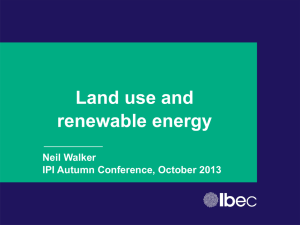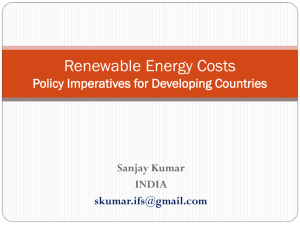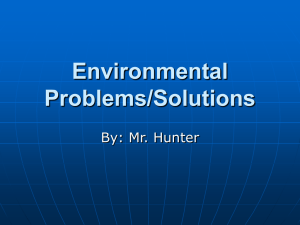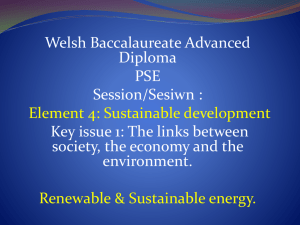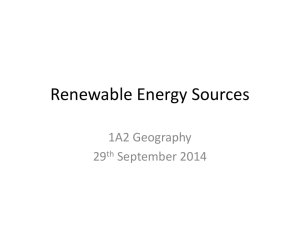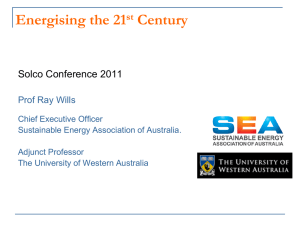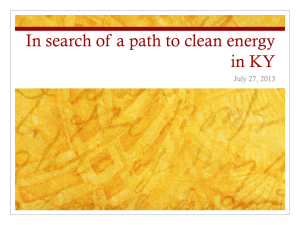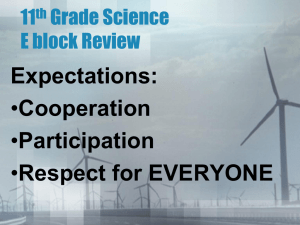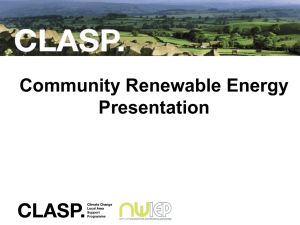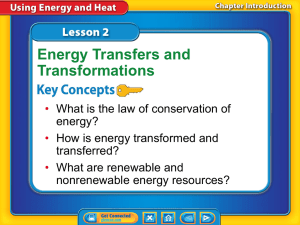5-Minute Prep
advertisement
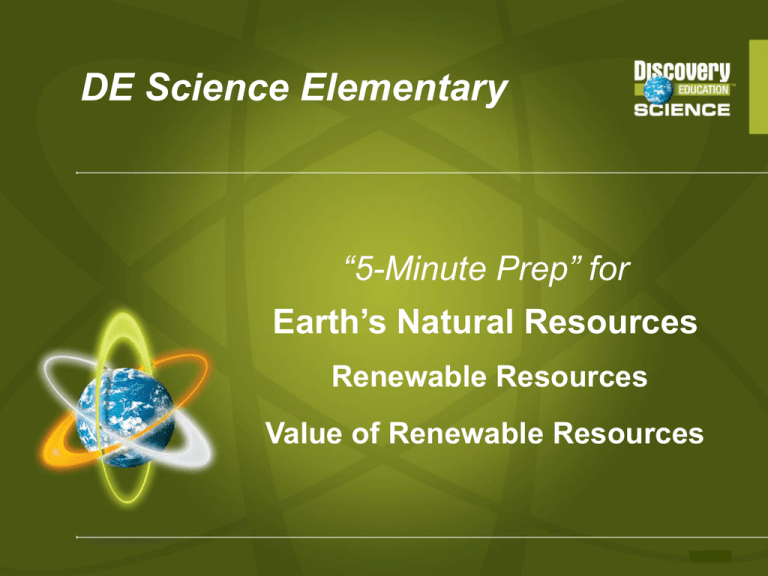
DE Science Elementary “5-Minute Prep” for Earth’s Natural Resources Renewable Resources Value of Renewable Resources Value of Renewable Resources – The Big Ideas • A renewable resource, such as solar energy, can be replenished. • A nonrenewable resource, such as coal and oil, cannot be replenished quickly. • A nonrenewable resource eventually runs out or ceases to exist. Value of Renewable Resources – Prior Knowledge Learning about the value of renewable resources is an advanced topic, and students will probably not have much background knowledge in this area. It would be helpful if students viewed the FUN-damental, Earth’s Resources, before beginning this unit. In addition, it would help students if they: – Knew the difference between nonrenewable and renewable. – Have ever seen renewable resources like solar power being used before. Value of Renewable Resources – Common Misconceptions • The ocean is infinite so pollution is not a problem and resources (like fish) are inexhaustible. – Reality: The ocean is a precious resource which we must protect. Evidence shows that pollution of the oceans is increasing and over-fishing endangers many fish species, harming ocean ecosystems. • Solar panels make electricity from the sun’s heat. – Reality: There are two types of solar panels. One uses light of the sun to make electricity. The other captures the sun’s heat to provide hot water or air. Value of Renewable Resources – Using DE Science Content When you close this presentation, you can review the following recommended resources for Value of Renewable Resources. • Exploration: Value of Renewable Resources • Virtual Lab: How Big is Your Footprint? • Video: Renewable Resources • eBook: Living in Harmony Use the PowerPoint version of this presentation for hyperlinks to these resources or you can get to them through the browser or search feature. Value of Renewable Resources – Instructional Ideas • As the students watch the video on renewable resources, have them keep a T Chart to record the difference between renewable and nonrenewable resources. • Use the Exploration with the entire class. – First, students find examples of nonrenewable resources. – Then, students match elements to renewable sources and read more about them. – Divide students into three groups, wind, solar and water energy. – Students can make informational posters and persuade others to use their renewable resource for energy. State Standards: If you wish to review your state standards about the value or Renewable Resources, click here to get to the curriculum standards search feature of DES. http://discoveryeducation.com/forward/curriculum.cfm You can click on any standard to see what resources are available to teach it. Additional Information: For additional content, check the Extend section within the concept.
